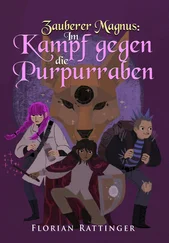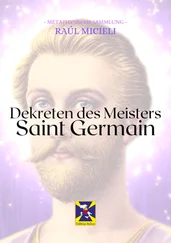Sylvie Germain - Magnus
Здесь есть возможность читать онлайн «Sylvie Germain - Magnus» весь текст электронной книги совершенно бесплатно (целиком полную версию без сокращений). В некоторых случаях можно слушать аудио, скачать через торрент в формате fb2 и присутствует краткое содержание. Год выпуска: 2008, Издательство: Dedalus Ltd, Жанр: Современная проза, на английском языке. Описание произведения, (предисловие) а так же отзывы посетителей доступны на портале библиотеки ЛибКат.
- Название:Magnus
- Автор:
- Издательство:Dedalus Ltd
- Жанр:
- Год:2008
- ISBN:нет данных
- Рейтинг книги:3 / 5. Голосов: 1
-
Избранное:Добавить в избранное
- Отзывы:
-
Ваша оценка:
- 60
- 1
- 2
- 3
- 4
- 5
Magnus: краткое содержание, описание и аннотация
Предлагаем к чтению аннотацию, описание, краткое содержание или предисловие (зависит от того, что написал сам автор книги «Magnus»). Если вы не нашли необходимую информацию о книге — напишите в комментариях, мы постараемся отыскать её.
Magnus — читать онлайн бесплатно полную книгу (весь текст) целиком
Ниже представлен текст книги, разбитый по страницам. Система сохранения места последней прочитанной страницы, позволяет с удобством читать онлайн бесплатно книгу «Magnus», без необходимости каждый раз заново искать на чём Вы остановились. Поставьте закладку, и сможете в любой момент перейти на страницу, на которой закончили чтение.
Интервал:
Закладка:
She had indeed cleaned up his scruffy teddy bear before stuffing him into the suitcase, just as she told him on the eve of their parting, but this cleaning-up turned out to be more a curious kind of mending. Magnus’s golden-yellow buttercup eyes that gleamed with gentleness have been transplanted to the soles of his feet and fixed in their place are two colourless but very sparkling little crystal roses. After a moment’s surprise, then uncertainty, Adam recognized these roses of glittering transparency: they were the diamond earrings Thea used to wear in the days of those splendid dinner parties and musical evenings in the house on the moors. The little boy he once was would marvel at their brilliance, like gleams of moonlight in his mother’s ears, suffusing her face and blonde hair with astral brightness. She brought them with her when they fled, along with all her other jewellery, to raise cash if need be. Since they were forever in need she must have sold off all her bits of treasure but these two perfect diamonds she had kept. Now they shone in Magnus’s face, two faceted beads, devoid of colour and above all of reverie. The eyes of a monstrous fly, blind and blinding.
Adam had a sudden impulse to tear off those obscene diamonds disfiguring his bear, but just as he was about to act on it his hands dropped: it was if he were about to do violence to his mother, to remove her eyeballs. He contented himself with removing from the bear’s neck the kerchief embroidered with the name Magnus, to blindfold him with it. On examining the buttercups ridiculously pinned to Magnus’s feet, he finally realized they too were a pair of earrings; much more modest pieces of jewellery, of a gold and copper alloy. Did his mother wear these when she was a young girl, before she married Clemens and appropriated jewellery stolen from the women assassinated by her husband in the camps?
He wrapped Magnus up in a cloth and hid him at the back of the wardrobe in his bedroom.
As soon as his level of English was sufficient to attend normal classes, his uncle enrolled him in a school as a boarder. So he spent most of the time away from the Schmalker family and his relationship with his two cousins, Erika and Else, five and three years older than him, remained distant. He preferred the younger, a small brunette of mischievous charm with already a lot of admirers. Erika by contrast inspired in him mixed, indeed rather painful, feelings so much did she resemble Thea — the aunt having circumvented the mother to pass on to Erika her fair hair, sharp features, and even the inflections of her voice. But the young girl inherited from Hannelore her taciturn character, solemn gaze, and reserve. This web of similarities even extends to her choice of fiancé: a young man from the emigrant German community in London who is intending to take up the same pastoral duties as his future father-in-law, just as the medical student Clemens Dunkeltal formerly followed in the footsteps of Professor Schmalker, very soon to branch off in a completely different direction, it is true, going so far astray he became totally mired.
Among Else’s girlfriends, who all excite his curiosity, one in particular captures his attention, a very curly redhead called Peggy Bell. What attracts him about this mercurial young lady are the little physical oddities of which she feels ashamed and that he finds enchanting, such as the sprinkling of freckles on her cheekbones and upturned nose, the dimple that appears in her left cheek whenever she smiles, the slight cast that imparts a look of perpetual surprise to her lime-green eyes, and her hands and feet, as small and plump as those of a little girl.
But this little girl is seventeen, and she is impudent. One summer afternoon when visiting the Schmalkers, finding herself momentarily alone with Adam in the drawing room, she leaps up from the chair in which she was sitting, and comes and stands right in front of him, an adolescent boy of nearly fifteen and all the more gauche for being in a confusion of desire, and asks him point blank, ‘Am I pretty? Tell me honestly, do you think I’m pretty or not?’ He is left speechless. She pretends to be offended, and he, incapable of responding with a compliment, of uttering the slightest word, or of smiling, grabs her in his arms and kisses her on the mouth. At the touch of her warm lips, her soft breasts against his chest, her body, all curves and youthfulness, he suddenly feels welling up inside him a rush as powerful as that he experienced with euphoria and amazement one day already long ago on the banks of Lake Constance, at the sight of the dual conflagration of sky and water during a storm. His kiss and his embrace are as fleeting as the gigantic flash of lightning was that day, and their effect just as intense. Then with the same abruptness with which he drew her close to him, he pushes her away and flees the room, red with shame, leaving Peggy dumbfounded.
This stolen kiss is to release in him over the coming months a succession of dreams that sometimes waken him with a start in the middle of the night, his belly wet with a milky whiteness. In each of his dreams he sees Peggy Bell coming towards him, sometimes laughing, sometimes looking cross, playing with her skirt, whose folds swing, dip and twirl, then drop down, all starched and well-behaved, only to start up again, twirling round. This game goes on for some time until Peggy catches her skirt by the hem and all of a sudden lifts it up. Lifts it up very high, baring her knees, thighs, belly. She is not wearing any knickers, she has just a little russet sun whose rays ripple over her extremely white skin. Sometimes the sun revolves, sometimes it turns into an orange-coloured thistle, or a chestnut-burr. But what exactly is inside the burr?
Erika gets married, and the following year it is Else’s turn, then Peggy Bell’s. So someone other than Adam has assumed the right to penetrate the secret of Peggy’s body, a certain Timothy McLane. Someone else, and not he, is going lay hold of her belly and her breasts, the little russet sun blazing between her thighs. Another. An interloper. Not he.
On the night of the wedding, overcome with suppressed fury and resentment, knowing he has been robbed of his dream, Adam does what he has never yet dared, and thought himself incapable of daring to do — he seeks out a prostitute. So, while Peggy takes off her white dress in some honeymoon suite and prepares to yield her virgin body to her husband, Adam in a short-stay hotel room watches some unknown woman with dyed hair undress with routine gestures and present to him her already faded body. She lies on the bed and spreads her legs. And there he has done with his virginity, with his dream of a sun of silk-soft warmth. He has done with his false innocence and his batch of naive images, but not with the strength of his desire that on the contrary becomes still more ardent.
The Schmalker house, to which he continues to return for all the holiday periods, seems very empty to him now. With the perfume and laughter of the young girls gone there is a drabness that now prevails. From time to time faint cries and mewlings are to be heard, those of Erika’s daughter, Myriam, when the young woman visits her parents with her baby. This is the first baby Adam has ever seen, for though as a child during the exodus he observed a lot of dead bodies along the way he has never before laid eyes on a newborn infant, and the sight amazes him. Myriam is a tiny creature with brown hair stuck to her head, her frog-like bulging eyes shut, little fists tightly clenched, a mouth greedy for milk and ready to complain. He dare not take her in his arms, her fragility terrifies him, her smell repulses him, her whimpering irritates him. But he bends over her when she is lying in her cradle and studies her at length, disturbed by this strange mixture of purity, daintiness and delicacy, and pathetic toad-like ugliness when the little face screws up and convulses as a result of hunger or some other vexation, the face of a miniature old man with diaphanous satin-like skin concentrating on some ancestral wisdom much too vast for his still unformed mind. He himself, he reflects, was like this baby, like some nacreous-hued ancient sage full of age-old knowledge, quivering with comfort in the maternal arms, with repletion on the maternal breast, with light in the maternal gaze, and imbibing, from his mother now dead, her milk, smiles, and tender words, her caresses and her smell. And he suspects this cannot have totally disappeared, that this original love must be dormant deep in his flesh. In far-off days her milk nourished him, her smiles quieted him. And her softly sung words wakened him to the world; her caresses, to his own body; and the clearness of those maternal eyes, to the beauty of the day. Maybe, in days yet to come, this love lying dormant in the darkness of his heart will raise its auroral face to cast light on him at last, to help him forgive all those crimes with which, out of pride and tragic stupidity, that foolish mother of his colluded. Maybe.
Читать дальшеИнтервал:
Закладка:
Похожие книги на «Magnus»
Представляем Вашему вниманию похожие книги на «Magnus» списком для выбора. Мы отобрали схожую по названию и смыслу литературу в надежде предоставить читателям больше вариантов отыскать новые, интересные, ещё непрочитанные произведения.
Обсуждение, отзывы о книге «Magnus» и просто собственные мнения читателей. Оставьте ваши комментарии, напишите, что Вы думаете о произведении, его смысле или главных героях. Укажите что конкретно понравилось, а что нет, и почему Вы так считаете.












